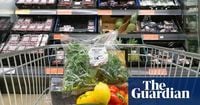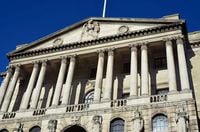The UK inflation rate has eased for the second consecutive month, dropping to 2.6% in March 2025, down from 2.8% in February. This decline in inflation comes as a relief compared to the staggering 11% peak seen in 2022, but analysts warn that this may be the calm before a storm. The latest figures from the Office for National Statistics (ONS) indicate that while prices rose at a slower rate, they did not fall overall.
Despite the positive news, the outlook remains uncertain as households brace for a series of bill hikes that took effect at the start of April. Utilities, council tax, and various service charges have all increased, which are expected to contribute to a rise in inflation in the coming months. The Bank of England forecasts that inflation could jump to 3.6% in April, driven largely by these higher costs.
Ruth Gregory, deputy chief economist at Capital Economics, predicts inflation will likely hit 3% in April due to significant increases in utility bills, which rose by 6.4% month-on-month, and a staggering 26% increase in water bills. "We estimate that the peak inflation rate this year would be around 3.5%, but we doubt it will stay there long," she stated. Gregory’s comments reflect a broader concern that the weak economy could lead to easing domestic inflation in the longer term.
The decline in March's inflation rate was attributed to a combination of factors, including falling fuel prices and slower price increases in recreational activities. The average price of petrol fell by 1.6 pence per litre between February and March, now standing at 137.5 pence per litre, down from 144.8 pence per litre in March 2024. However, clothing and footwear prices saw an upward trend, counterbalancing some of the decreases in other areas.
As households face rising costs, the Resolution Foundation highlighted that these increases are particularly burdensome for low-to-middle income families, who have been grappling with food insecurity rates reaching 11% in 2023-24. The think tank noted that energy spending accounted for nearly double the total consumption for these households compared to high-income families.
On the international front, the ongoing trade tensions initiated by US President Donald Trump have further complicated the economic landscape. While tariffs on goods imported into the US have been a source of concern, particularly for the UK, the situation has evolved. Trump has recently paused many of the harshest tariffs, leading to speculation that the UK might benefit from an influx of cheaper goods from China, which is facing substantial tariffs on its exports to the US.
"If China is forced to dump goods in Europe due to high tariffs, we could see increased price competition in the UK, potentially slowing inflation," said Gregory. However, the uncertainty surrounding global trade policies remains a significant factor for UK inflation and economic growth.
The Bank of England is under pressure to respond to these economic indicators, with markets anticipating an 86% probability of an interest rate cut at the upcoming Monetary Policy Committee (MPC) meeting on May 8, 2025. This would mark a reduction of the key base rate by a quarter of a percentage point to 4.25%. Analysts believe that cutting interest rates could stimulate consumer demand, but it also risks pushing inflation further away from the Bank's target of 2%.
In the labor market, wage growth remains stubbornly above inflation, with earnings excluding bonuses rising to 5.9% in the latest report. This figure, while slightly below the expected 6%, reflects ongoing pressures in the job market. However, the number of job vacancies has fallen to 781,000, down from 816,000 previously, indicating a slowdown in hiring and potential job losses.
Chancellor Rachel Reeves has acknowledged the challenges families face amid rising costs, stating, "Inflation falling for two months in a row, wages growing faster than prices and positive growth figures are encouraging signs that our plan for change is working, but there is more to be done." In contrast, Shadow Chancellor Mel Stride criticized the government's approach, arguing that current policies are keeping inflation higher for longer and negatively impacting working families.
As the UK navigates this complex economic landscape, the interplay between inflation, interest rates, and global trade policies will be crucial. The Bank of England's next moves will be closely watched, as they attempt to balance growth concerns with the need to control inflation. With predictions of rising inflation in the near future, the coming months will be pivotal for policymakers and families alike.
Looking ahead, Deutsche Bank has projected that inflation could peak at 3.75% by the third quarter of 2025, influenced by higher energy prices. As the situation evolves, it remains to be seen how the Bank of England will adjust its strategies to maintain economic stability while addressing the pressing needs of households facing increasing financial pressures.









